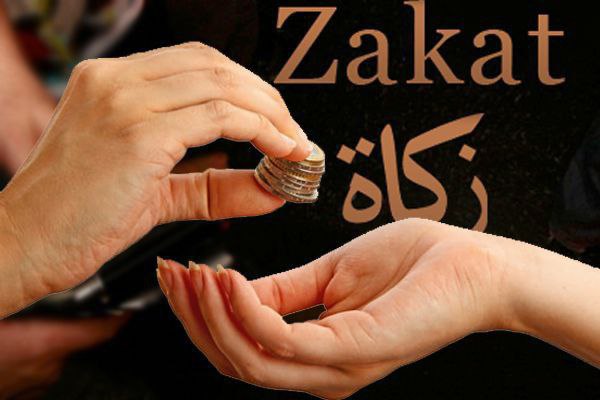Islam has a strong interest in finance and banking. Islamic finance and banking are rooted in Islamic principles and teachings, and they are rooted in Islamic history to promote economic development while adhering to Islamic ethical and moral values. Islam religion has a strong interest in finance and banking, and Islamic finance and banking are rooted in Islamic principles and teachings. Islamic finance and banking encourage economic development and financial inclusion while adhering to Islamic ethical and moral values. They offer a range of financial products and services that are compliant with Shariah and are structured to promote risk-sharing and profit-sharing arrangements. Islamic finance and banking have grown rapidly in recent years and are seen as important tool for promoting economic development and financial inclusion while promoting ethical and socially responsible investment.
Principles of Islamic banking
Table of Contents
ToggleIslamic finance is based on the principles of Shariah “the Islamic legal and ethical system”. Shariah prohibits interest-based transactions (Riba) or (Usury) and promotes risk-sharing and profit-sharing arrangements (mudarabah and musharakah). Islamic finance also prohibits investments in industries that are considered harmful and prohibited to society, such as gambling and alcohol. Islamic banking operates according to these principles, offering a range of financial products and services that are compliant with Shariah. These products and services include savings accounts, home financing, and business financing, among others. Islamic banks also offer investment products, such as mutual funds and Islamic bonds (Sukuk), which are structured to comply with Shariah principles. Islamic finance and banking have grown rapidly in recent years, with Islamic financial institutions operating in more than 60 countries worldwide. Islamic finance and banking have been particularly popular in Muslim-majority countries, but they have also gained popularity in other parts of the world, including Europe and North America because they adhere important principles.

Islamic banking products and services
Islamic banking products and services are financial products and services that are structured in accordance with Islamic principles and teachings. These products and services are designed to promote financial inclusion and economic development while adhering to Islamic ethical and moral values. Some of the most common Islamic banking products and services include:
- Islamic Savings Accounts: Islamic savings accounts are designed to provide a safe and secure place for individuals to save their money while adhering to Islamic principles. These accounts do not offer interest, which is prohibited under Shariah, but instead offer profit-sharing arrangements based on the bank’s profits.
- Islamic Home Financing: Islamic home financing provides individuals with a way to purchase a home without resorting to interest-based financing, which is prohibited under Shariah. Instead, Islamic home financing uses a variety of structures, such as Musharakah and Murabahah, to provide financing that is compliant with Islamic principles.
- Islamic Business Financing: Islamic business financing provides businesses with a way to access capital without resorting to interest-based financing. Islamic business financing uses a range of structures, such as mudarabah and musharakah, to provide financing that is compliant with Islamic principles.
- Islamic Insurance (Takaful): Islamic insurance, or Takaful, is a form of insurance that is based on the principles of mutual assistance and cooperation. Takaful policies are structured to comply with Shariah principles, and they are designed to provide individuals and businesses with protection against financial loss.
- Islamic Investment Products: Islamic investment products are structured to comply with Shariah principles and are designed to provide individuals and businesses with a way to invest their money in a manner that is compliant with Islamic teachings. Islamic investment products include mutual funds, Islamic bonds (sukuk), and other investment vehicles, which are structured to comply with Shariah principles.
- Islamic Credit Cards: Islamic credit cards are designed to be compliant with Shariah principles, and they offer a range of features and benefits that are tailored to the needs of Muslim consumers. Islamic credit cards do not charge interest, but instead, they charge a fee for late payments or other services.
- Islamic Wealth Management: Islamic wealth management services are designed to help individuals and businesses manage their wealth in a manner that is compliant with Islamic principles. These services include financial planning, investment management, and other services that are tailored to the needs of Muslim clients.

Islamic finance regulations
The regulatory framework for Islamic finance is constantly evolving, taking into account the unique characteristics of Islamic financial products and services and the need to ensure compliance with Shariah principles. Effective regulation is essential to ensure the stability and growth of the Islamic finance industry, and to ensure that Islamic financial institutions operate in a transparent and ethical manner.
Islamic finance is regulated by a range of institutions and regulatory bodies, which vary depending on the country or region in which the Islamic financial institution operates.
- Central Banks: Central banks are responsible for regulating the overall financial system in a given country or region. In many Muslim-majority countries, central banks have established Shariah supervisory boards (SSBs) to oversee the operations of Islamic financial institutions. These SSBs are responsible for ensuring that Islamic financial institutions operate in compliance with Shariah principles.
- Shariah Supervisory Boards (SSBs): SSBs are responsible for overseeing the operations of Islamic financial institutions and ensuring that they operate in compliance with Shariah principles. SSBs are usually composed of Islamic scholars and experts in Islamic finance and banking.
- Financial Services Authorities: Financial services authorities are responsible for regulating financial institutions and ensuring that they operate in compliance with applicable laws and regulations. In some Muslim-majority countries, financial services authorities have established separate regulatory frameworks for Islamic financial institutions.
- Accounting and Auditing Organizations: Accounting and auditing organizations are responsible for ensuring that Islamic financial institutions comply with applicable accounting and auditing standards. These organizations are also responsible for conducting audits of Islamic financial institutions to ensure compliance with Shariah principles.
- International Islamic Financial Institutions: International organizations such as the Islamic Development Bank and Accounting and Auditing Organization for Islamic Financial Institutions (AAOIFI) play a key role in the development and regulation of Islamic finance. These organizations provide guidance on Islamic finance standards and best practices and facilitate cooperation and coordination among Islamic financial institutions and regulators across different countries and regions.
- Legal Frameworks: Countries with significant Muslim populations have developed specific legal frameworks to support the development and regulation of Islamic finance. These legal frameworks may include specific laws, regulations, and guidelines that apply to Islamic financial institutions and products.

Conclusion
Islam has a strong concern with finance. Islamic principles and teachings provide guidance on how to conduct financial transactions and manage wealth in a way that is consistent with Islamic ethics and Allah’s commands. Islam religion also emphasizes the importance of charitable giving (zakat) and ethical business charities. Zakat is one of the five pillars of Islam, and it requires Muslims to give a portion of their wealth to those in need. Islamic ethical business practices emphasize honesty, fairness, and transparency, and they discourage practices that are harmful to society, such as gambling and alcohol.
To learn more about Islam Enroll in our online Islamic studies course free trials by Hamil Al Quran academy.
